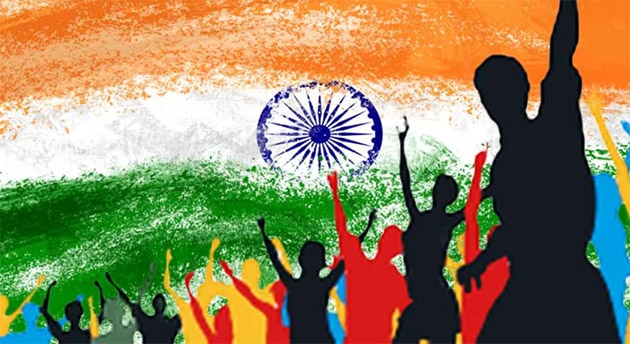Amrish Kumar
For the first time since the abrogation of Article 370 and 35A in Jammu and Kashmir, the assembly elections are going to take place. In such a scenario, it is the duty of every citizen of Jammu and Kashmir to vote in the national interest and also inspire others to do the same. Before participating in this festival of democracy, I would like to present a thought-provoking subject to you.
To simplify the subject, I will begin with a story. This story is in the context of our personal and national character.
Every person should have a bright personal character, but the importance of having a bright national character is even greater. There was a king named Karna in the state of Gujarat. King Karna was very brave, and no invader could even dare to look towards his kingdom. His prime minister was very knowledgeable and diligent.
Once, the king abducted the wife of a senior chieftain of his kingdom. The prime minister tried to make the king understand his mistake, but the king did not listen. This enraged the prime minister, and he vowed to punish the king. In his anger, the prime minister lost his wisdom. He contacted the Mughal Sultan of Delhi and incited him to attack his own kingdom. What else did the Sultan need? He attacked, and due to the betrayal of his own people, King Karna was defeated. The prime minister’s vow was fulfilled, but what happened afterward? The Mughals wreaked havoc in the kingdom. They destroyed temples, humiliated women, slaughtered cows, and threw thousands of men, women, and children into the fire, including the prime minister’s own family. Even after this, the Sultan did not leave. He kept the state under his rule for hundreds of years. Not only that, after gaining a foothold there, he attacked other southern states as well, and the people of those states also had to face similar humiliation.
This incident shows that while King Karna’s national character was strong, his personal character was not. On the other hand, the prime minister had a good personal character, but due to a lack of national character, his kingdom had to accept Mughal subjugation.
This story is hundreds of years old, but it is just as relevant in today’s context. There are many more such examples in India where a deficiency in national character can be seen. One prominent example is that of Jayachand, with whom you all are well-acquainted.
India, once known as the ‘golden bird’, is a country where we, the citizens, are descendants of heroes like Lord Ram, Lord Krishna, Lord Parashuram, Devavrata (Bhishma), Bharat, Karna, and Arjuna. In science, our ancestors, the sages, mapped all the stars thousands of years ago. When the West did not know how to read or write, India had universities like Takshashila and Nalanda, where research was conducted on subjects like space science, environmental science, health science, Ayurveda, political science, economics, yoga, law, and countless others.
Despite being prosperous, powerful, and intelligent, due to the decline in the national character of a few people, we had to remain subjugated for hundreds of years. My purpose today is merely to alert the entire society. I am not questioning your wisdom, but in this age of the information revolution, we often do not even realize when our discourse is manipulated through social communication networks. In such a scenario, it is natural for anyone to become confused.
The highest standards of governance that our ancestors had established seem to be diminishing today.
Political parties, in their pursuit of power, resort to all means, including bribery, coercion, and division. Some even do not hesitate to seek foreign assistance.
We have no idea what kind of games are being played behind the scenes. Recently, we have seen regime changes in our neighboring countries-Pakistan, Maldives, and Bangladesh-due to foreign interference. I feel similar efforts are being made in India. Political parties are following the British policy of ‘divide and rule’ to the letter. Society is being divided based on caste, religion, and class, which is an extremely dangerous situation.
We must be cautious of those who are doing this and work to raise awareness in society on these issues. We must make continuous efforts to unite society as a whole and foil such conspiracies. Those responsible for such actions should be identified and socially boycotted. For this, we can use dialogue and social communication networks effectively.
In today’s context, this is our biggest duty towards the nation. If the person sitting at the top of the government is not of high integrity, the people will naturally become incompetent.
The scriptures say:
Raagye Dharmani Dharmishtha: Pape Papah Same Samaah.
Rajanam Anuvartante Yatha Raja Tatha Praja?”
This means that the king must be righteous. In the kingdom of a sinful king, sin spreads. The people follow the king. As the king, so are the subjects.
This is the right time for us to renounce all forms of temptation, personal selfishness, differences, and preferences, and evaluate our representatives carefully before electing them. We must vote for the best person available in the interest of the nation, ensuring that no one with a weak national character comes to power.
Trending Now
E-Paper


